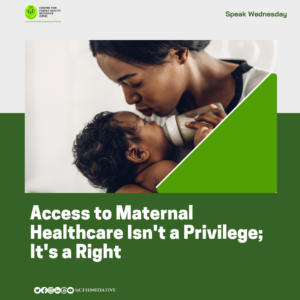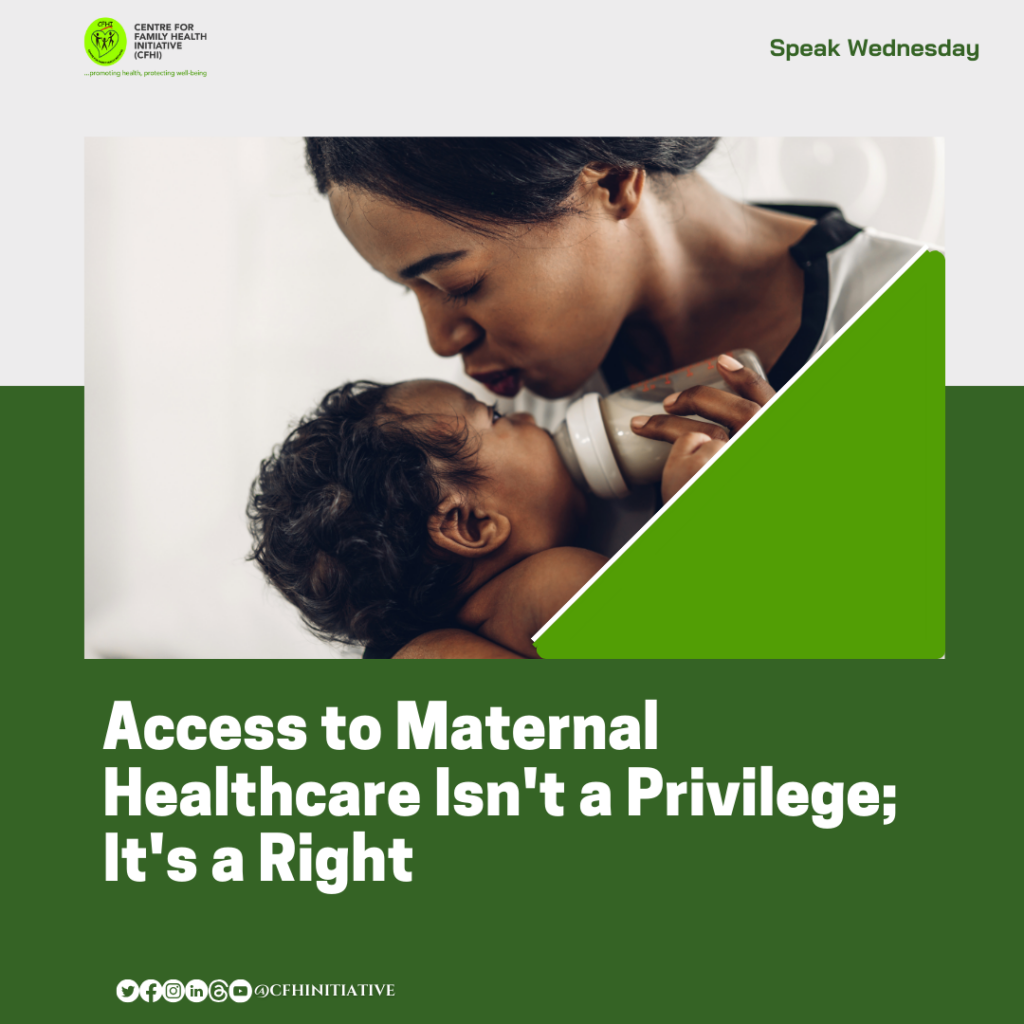Imagine a young woman in rural Nigeria, miles away from the nearest health facility. She is expecting a child, but the journey to antenatal care is long, costly, and fraught with challenges. This scenario is a daily reality for countless Nigerian women, and it is a situation that demands immediate attention.
The Stark Reality
According to the World Health Organization, Nigeria’s maternal mortality rate was estimated at 917 per 100,000 live births in 2017, increasing by nearly 14% to reach 1,047 deaths per 100,000 live births in 2020. This alarming statistic underscores the urgent need for improved maternal healthcare services in the country
Barriers to Care
Several obstacles impede Nigerian women’s access to essential maternal healthcare:
• Financial Constraints: The high costs associated with prenatal and delivery services deter many from seeking care. A significant portion of the population lives below the poverty line, making even subsidized healthcare services unaffordable for many.
• Geographical Challenges: Inadequate infrastructure renders health facilities inaccessible, particularly in rural regions. Many communities lack nearby healthcare centres, forcing expectant mothers to travel long distances, often in precarious conditions, to access maternal care.
• Cultural Beliefs: Deep-seated traditions and misconceptions discourage women from pursuing professional medical assistance. In some communities, there is a preference for traditional birth attendants over trained healthcare professionals, leading to increased risks during childbirth.
• Gender Discrimination: Systemic gender biases limit women’s autonomy in making health-related decisions. In certain regions, women’s healthcare needs are deprioritized, and their voices are marginalized in decision-making processes.
The Domino Effect
When mothers lack access to proper healthcare, the repercussions are profound. High maternal mortality rates lead to increased infant mortality and leave families vulnerable. It is a cycle that perpetuates poverty and hinders national development. Families often face financial ruin due to medical expenses, and communities bear the emotional and social toll of losing mothers and children.
Success Stories: A Glimmer of Hope
Despite these challenges, there are beacons of hope. Centre For Family Health Initiative has been instrumental in advancing Maternal, Newborn, and Child Health (MNCH). Partnering with the Clinton Health Access Initiative (CHAI), CFHI led a community activation project in 10 Local Government Areas in Kaduna State, focusing on increasing awareness of Family Planning (FP) and Post-Partum Family Planning (PPFP) services. CFHI reached over 921 Traditional Birth Attendants, 513 leaders, 285 Islamiyah teachers, and 594 community women, organizing multiple sensitization events.
During MNCH Week, CFHI provided services like free HIV screening, immunization, family planning, and malnutrition screenings. The initiative also addressed key barriers to maternal care, including HIV testing, Prevention of Mother-to-Child Transmission (PMTCT), and male involvement in antenatal care, through community engagement and partnerships with government and NGOs. These initiatives demonstrate CFHI’s unwavering commitment to improving healthcare access and outcomes for mothers and children across the country.
Time for Action
Maternal healthcare is a fundamental right. To bridge the gap, we must:
• Invest in Healthcare Infrastructure: Enhance and equip facilities in underserved areas. Building more healthcare centres and ensuring they are well-stocked with essential medicines and equipment can reduce the distance and cost barriers for expectant mothers.
• Subsidize Maternal Services: Ensure prenatal and delivery care are affordable for all. Implementing policies that cover the costs of maternal health services can alleviate the financial burden on families and encourage more women to seek care.
• Educate Communities: Promote awareness about the significance of professional maternal healthcare. Community-based education programs can dispel myths, address cultural misconceptions, and empower women with knowledge about their health rights.
• Address Gender Bias: Implement policies that empower women in healthcare decisions. Ensuring women’s participation in health-related decision-making processes at both household and community levels can lead to more equitable and effective healthcare outcomes.
Join the Movement
Every woman deserves a safe pregnancy and childbirth experience. Let us advocate for policies and practices that prioritize maternal health. Share this message, support local initiatives, and demand change. Together, we can build a future where maternal health is a right enjoyed by all, not a privilege for the few.
Speak. Every. Wednesday. Speak Every Day Until We Act right.
Speak Wednesday is an initiative of CFHI to address issues around gender-based violence and gender bias.
#MaternalHealth4All #EndMaternalMortality #GenderEquality #GenderBias #WomenRights #SafeMotherhoodNow #HealthcareForEveryWoman #SpeakWednesday
References
• World Health Organization. (2015). “Trends in Maternal Mortality: 1990 to 2015.” WHO Report
• Federal Ministry of Health, Nigeria. (2018). “National Health Policy.” FMOH Policy
• United Nations Population Fund. (2020). “State of the World Population Report.” UNFPA Report
• Nigerian Health Watch. (2019). “Bridging the Gap in Maternal Healthcare Access.” NHW Article
• International Journal of Gynecology & Obstetrics. (2017). “Maternal Health in Nigeria: A Review.” IJGO Study


